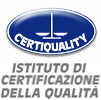HOW WE WORK
Unlike other certification and control activities (HACCP, ISO, etc.) Halal certification has no national or international state-mandated guidelines.
In fact very few States have regulated this activity (see, for example, the Emirates, Malaysia or Indonesia). In the rest of the world, and in Italy as well, Halal certification is not regulated by state legislation or by specific organizations.

Substantially, in Italy, with the exception of a Decree in 1998 (addressing slaughtering only) there are no regulations regarding Halal certification of products. To certify that a product is Halal, and therefore compliant with Shari'a, one must refer to Islamic law (Quran, Hadith, fatwas, etc.) which prescribes that which, in Islam, is lawful (Halal) or unlawful (Haram) .
Halal Global also operates in this way and, before issuing certification stating that the product is Halal, verifies that the production process and the raw materials used are compliant with Islamic law in this area.
This inspection is conducted, through our agency, by at least two experts who check the entire production process, both from a scientific point of view as well as a religious one. To provide greater clarity and transparency to the consumer, the scientific expert takes a product sample during testing to be analyzed by an independent, non affiliated, accredited laboratory, to make sure that there are no traces of alcohol or pork.
Regarding the aspect of Islamic law, it should be noted that there are different interpretations among the various legal schools (Hanafi, Hambali, Maliki and Shafii) on what should be considered lawful and unlawful in Islam.
Halal Global tries, when possible, to observe the precepts of each school and, when in doubt, has chosen to rely on the fatwa issued by the European Council for Fatwa and Research, an internationally recognized organization whose founder and President is Professor Yusuf Al-Qaradawi.

